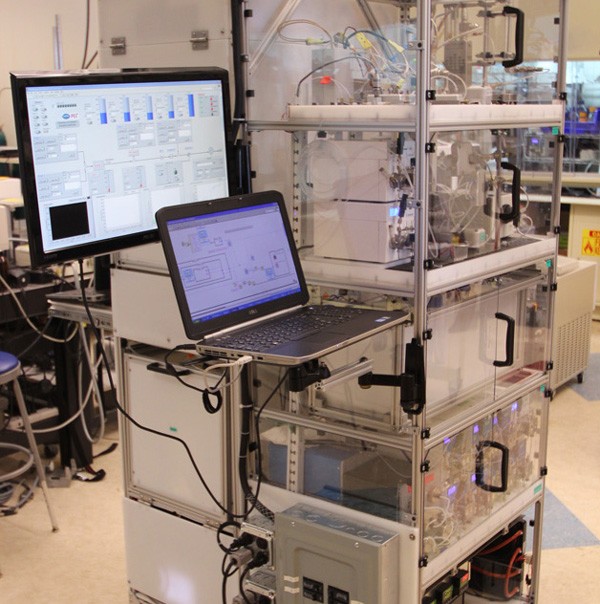Tiny freeze-dried pellets that include all the molecular machinery needed to translate DNA into proteins could form the basis for on-demand production of drugs and vaccines.
Developed by researchers at MIT and other institutions, the pellets, which contain dozens of enzymes and other molecules extracted from cells, can be stored at room temperature. When water and freeze-dried DNA are added, the pellets begin producing proteins encoded by the DNA.
“It’s a modular system that can be programmed to make what you need, on the spot,” says James Collins, a professor of biological engineering who is also the Termeer Professor of Medical Engineering and Science in MIT’s Institute for Medical Engineering and Science (IMES).

The freeze-dried pellets, which remain stable for at least a year, consist of a few dozen enzymes, DNA, and RNA, as well as ribosomes and other molecular machines necessary to translate the DNA into proteins. Only a few millimeters in diameter, they could easily be carried by soldiers, astronauts, or health-care workers heading to remote areas, Collins says.
Such pellets could be used to generate a wide range of products, including not only drugs and vaccines but molecules that could be used to diagnose illness. This could prove easier than using live cells to generate biopharmaceuticals, because the freeze-dried components are easy to store and ship, and they don’t need to be refrigerated.
“It could be used in a very simple carry kit for health-care workers going into the field in developing regions,” Collins says. “We think it could be very useful for the military, when you’re going out on a mission in the field, or for hikers and athletes going for long hauls. You could even have it in the back of your car as an expanded first aid kit.”
Keep Reading
Most Popular
Large language models can do jaw-dropping things. But nobody knows exactly why.
And that's a problem. Figuring it out is one of the biggest scientific puzzles of our time and a crucial step towards controlling more powerful future models.
How scientists traced a mysterious covid case back to six toilets
When wastewater surveillance turns into a hunt for a single infected individual, the ethics get tricky.
The problem with plug-in hybrids? Their drivers.
Plug-in hybrids are often sold as a transition to EVs, but new data from Europe shows we’re still underestimating the emissions they produce.
Stay connected
Get the latest updates from
MIT Technology Review
Discover special offers, top stories, upcoming events, and more.